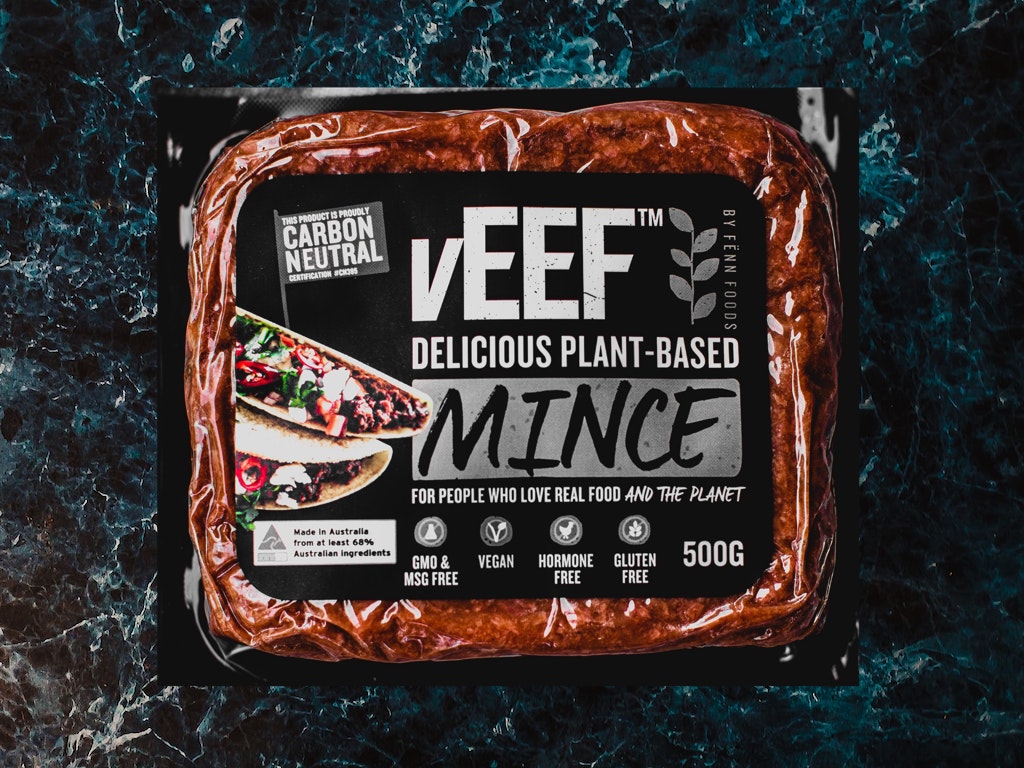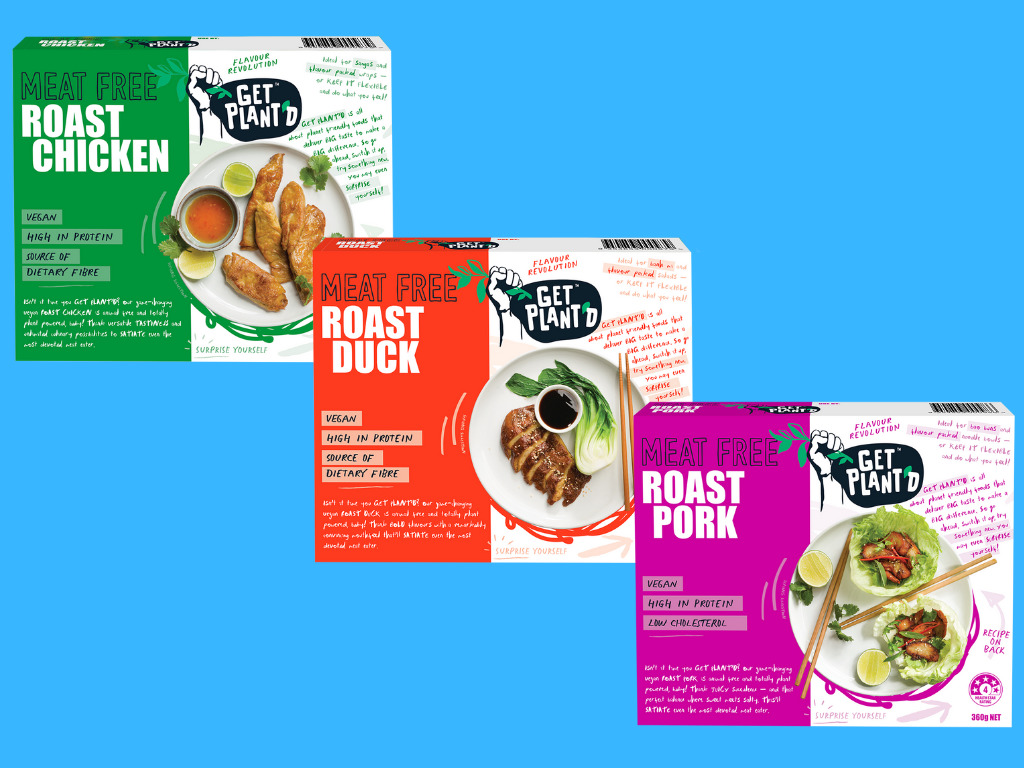3 Mins Read
Coles has debuted a new-to-it plant-based meat brand. The grocery giant has more than 800 locations throughout Australia, all of which will be stocking the Get Plant’d range. Products have been developed to mimic the full experience of eating meat, with focus placed on texture, taste and aroma.
Get Plant’d products feature wheat and soy protein as key ingredients in their plant-based bacon, chicken slices and fillets, roast pork and duck, and pepperoni.

Coles targets the growing Australian flexitarian market
Australia is one of the biggest consumers of animal protein, with 81.6kg per capita cited in 2019, despite the recommendations to reduce meat consumption in order to lessen meat’s impact on the climate and reduce the risk of negative human health consequences.
The country has resisted shifting to plant-based protein with attempts to block ‘meaty’ plant-based food labelling. The premise was that Australian shoppers were being ‘duped’ into buying meat-free items. Later studies concluded that this was not an accurate depiction.
Despite institutional reluctance to reduce meat intake, there is a growing flexitarian movement in Australia, driven by consumers. In 2019, the Australian Heart Foundation revised its dietary guidelines to include a reduction in red meat consumption. Health-critical information coupled with easier access to plant-based foods has led Australian diners to claim that 20 percent of them now identify as flexitarian. These are the customers that Coles hopes to appeal to by stocking Get Plant’d.

Catering to an established movement and generating food security
Coles cites research that highlights the increase in demand for plant-based meat items as a driving motivation for distributing the Get Plant’d line. Figures are said to indicate that one-third of eaters are actively ingesting less meat.
“In Australia, there is a growing segment of ‘flexitarian’ customers who will happily choose plant-based pepperoni for their pizza, or opt for plant-based chicken in their sandwiches, provided these options are tasty, accessible, and convenient,” Cale Drouin, co-founder of Get Plant’d said in a statement. “Consumers are more conscious today, and they’re looking for simple solutions to the issues they perceive in their world.”
Drouin also purported that in a wider sense, plant-based protein has a critical role to play in Australia’s future food security. With global food supply chains still reeling from disruption caused by Covid-19, politics, and natural disasters, domestic provision has become a focus for most nations.
At present, Australia is heavily dependent on its meat and dairy industries. These are resource-heavy and actively contribute to the country’s emissions levels.
“Shifting government policies to prioritise plant-based protein would help to ensure Australians have consistent access to safe, homegrown crops that are more environmentally and economically sustainable,” Drouin stated.

Moving in the right direction
Last month it was reported that the Australian plant-based market is expected to reach up to $9 billion by 2030. The country is being considered a potential driving force for all things animal-free, thanks to increased domestic grocery chain partnerships, more exportation, and tech-centred food development.
Central to Australia’s reinvention as a vegan haven will be the Australian Plant Proteins project which has seen AU$378 pledged to develop three specialist new production facilities.
Lead image created using Get Plant’d product imagery.




